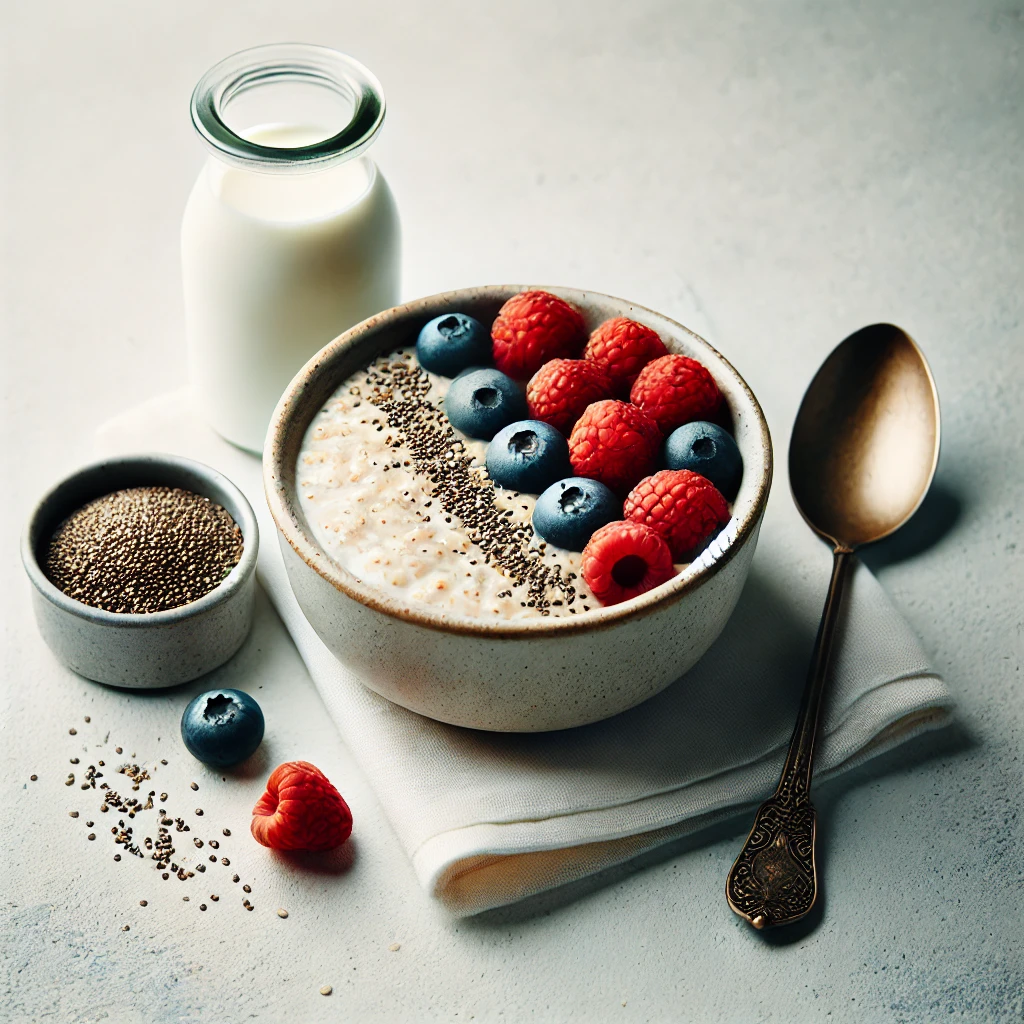Overnight oats have become a go-to breakfast option for busy people who want a healthy, delicious, and convenient meal in the morning. They’re easy to prepare and customizable with a variety of flavors and toppings. However, there are some common mistakes when preparing overnight oats that can lead to a less-than-ideal breakfast experience. In this article, we’ll cover what not to add in overnight oats to ensure you’re making the most of this nutritious meal.
Using Water Instead of Milk
While you can technically use water instead of milk when preparing overnight oats, doing so will leave you with a runny and less flavorful texture. Water lacks the creaminess and richness that milk or plant-based milk provides. The result? Bland oats that don’t offer the satisfying, creamy consistency most people expect.
Opt for milk or plant-based alternatives such as almond milk, oat milk, or soy milk to give your oats a fuller flavor. Using milk not only enhances the texture but also contributes extra nutrients. For more tips on enhancing the flavor and texture of your morning meals, you might want to explore this guide on best healthy filling breakfast options.
Avoid Instant or Steel-Cut Oats
Choosing the wrong type of oats is a common mistake. Instant oats become too soggy when left to soak overnight, while steel-cut oats don’t absorb enough moisture and result in a hard, gritty texture. The best choice for overnight oats is old-fashioned rolled oats. They absorb the liquid without becoming mushy, creating the perfect creamy texture you want for breakfast.
For more insights on oats and how they affect your overnight oats, explore this guide on plant-based blended overnight oats to discover the best types of oats for different uses.
Forgetting to Add Salt
One of the most overlooked ingredients in overnight oats is a simple pinch of salt. Adding salt might not seem necessary, especially when you’re making a sweet recipe, but it can significantly enhance the flavors. Salt balances out the sweetness from ingredients like honey, maple syrup, or bananas, and it also brings out the natural flavors of the oats. It’s a small addition that makes a big difference in taste.
Adding Berries the Night Before
Many people enjoy adding fresh fruit to their overnight oats for natural sweetness and flavor. However, not all fruits hold up well when soaked overnight. Berries, such as blueberries, strawberries, and raspberries, tend to break down and become mushy if left soaking in oats overnight. This can result in soggy, discolored oats with an unpleasant texture.
Instead, add berries right before serving for a fresh, vibrant taste. If you prefer prepping in advance, you can prepare your berries the night before but store them separately, adding them to the oats in the morning. For more inspiration, you can also check out best toppings for toast for ideas that can complement your morning oats.
Not Stirring Your Ingredients
Layering ingredients like peanut butter, chia seeds, or sweeteners without stirring can result in uneven flavors and textures. If you don’t stir your oats thoroughly before refrigerating them, you’ll likely end up with clumps of certain ingredients and bland patches in others.
Take a few extra seconds to mix your overnight oats before placing them in the fridge. This ensures that all ingredients are evenly distributed, resulting in a balanced and delicious breakfast.
Skipping Spices and Seasonings
Don’t underestimate the importance of adding spices and seasonings to your overnight oats. Spices like cinnamon, ginger, and pumpkin spice can significantly elevate the flavor of your oats, making them more interesting and delicious. Without these, oats can taste bland, especially if you’re not adding much sweetness.
Experiment with different spices and seasonings to find your favorite flavor combinations. Whether you prefer a warming touch of cinnamon or a hint of nutmeg, these additions can make your overnight oats anything but boring.
Leaving Out Nuts and Seeds
Nuts and seeds add both texture and nutrition to your overnight oats. Without them, you may miss out on the crunch and added health benefits they bring. Chia seeds, for example, not only thicken your oats but also add omega-3s and fiber. Similarly, nuts like almonds, walnuts, and pumpkin seeds provide a satisfying crunch and a boost of protein and healthy fats.
Don’t skip out on these nutritious and delicious toppings. They’re a simple way to take your oats to the next level.
FAQs About Overnight Oats Mistakes
Can I use water instead of milk in overnight oats?
Yes, you can, but water will result in a less creamy and flavorful texture. Milk or plant-based alternatives like almond milk are better options.
Should I add fruits like berries the night before?
No, it’s best to add berries right before serving to avoid them becoming mushy.
Why is it important to stir overnight oats before refrigerating?
Stirring ensures all ingredients are evenly distributed, resulting in a balanced flavor and texture.
Can I use steel-cut oats for overnight oats?
Steel-cut oats don’t absorb enough liquid and remain too gritty. Rolled oats are the best option for a creamy texture.
Do I need to add salt to overnight oats?
Yes, a small pinch of salt enhances the flavors and balances the sweetness of other ingredients.
Overnight oats are an incredibly versatile and healthy breakfast, but certain ingredients can ruin the taste and texture if not used correctly. Avoid using water instead of milk, steer clear of instant or steel-cut oats, and remember to add a pinch of salt. By following these tips and using the right ingredients, you’ll ensure your overnight oats turn out creamy, delicious, and perfectly balanced every time.
For more tips on creating the perfect breakfast, check out healthy breakfast curry recipes and discover how to boost flavor in your morning meals!
